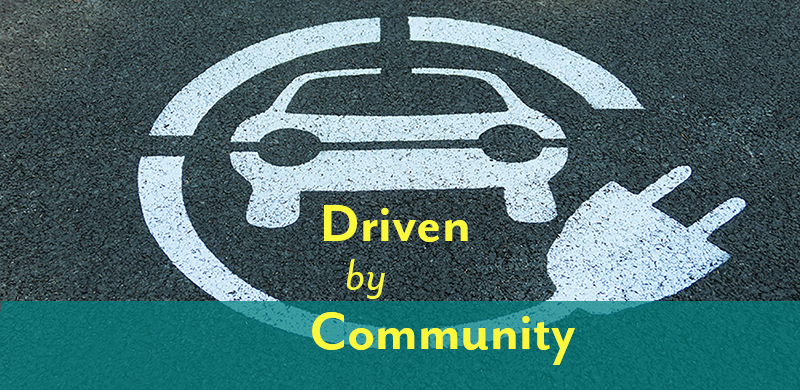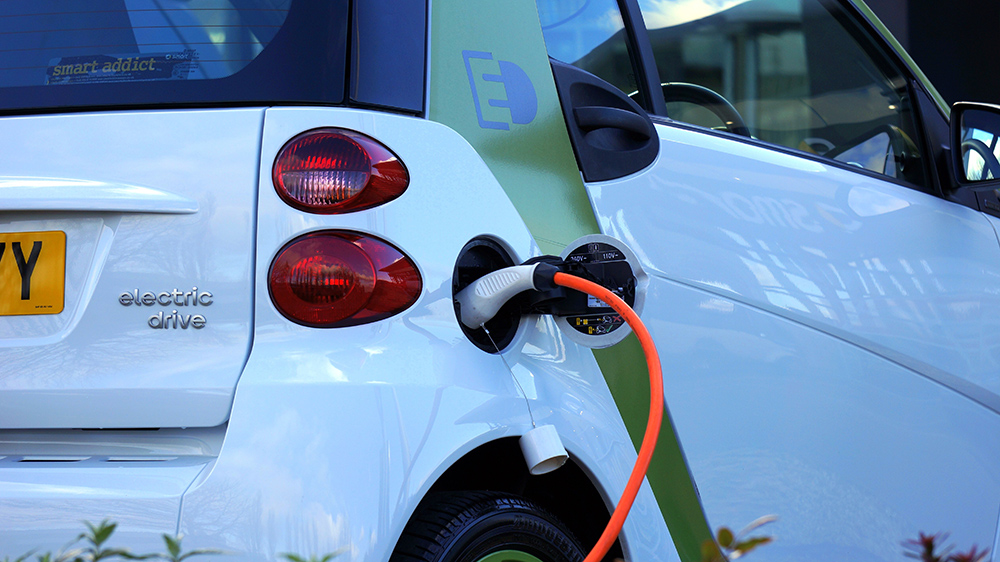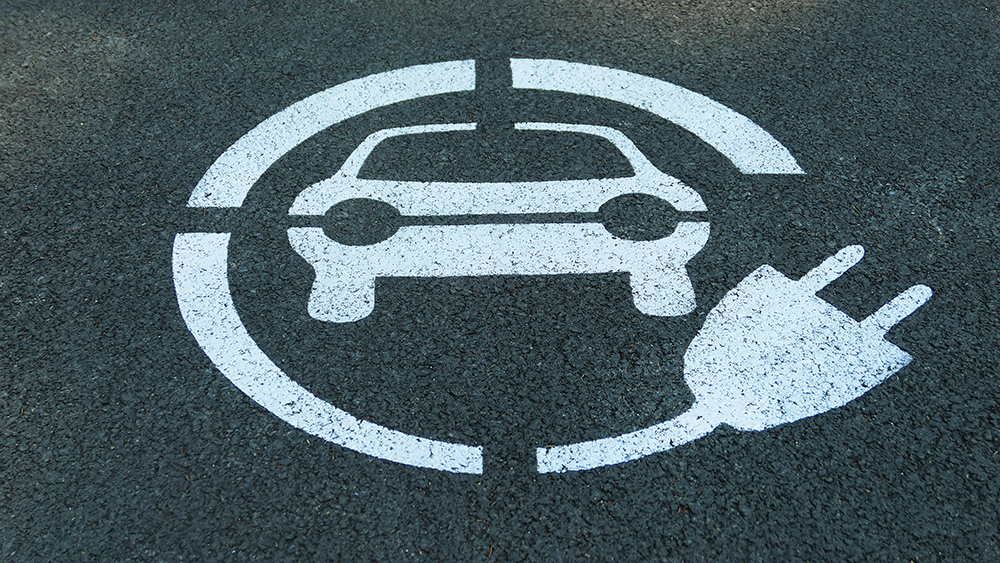Driven by Community

Feasibility study on carsharing electric vehicles in Dartmouth North

by Treno Morton
Introduction and Overview
In an effort to raise awareness around opportunities for communities to take collective action on climate change while addressing belonging as a key issue, we partnered with the YMCA of Greater Halifax/Dartmouth and The North Grove with the intention of conducting a social lab to demonstrate how communities are impacted by Nova Scotia’s three largest greenhouse gas emitting contributors: Buildings, Electricity, and Transportation.
During the research and discovery phase, we determined that it would be most effective to focus on transportation, more specifically, EV car-sharing. Further consultation with partners saw the project evolve into a feasibility study on car-sharing electric vehicles among these three organizations. Including this aspect of pooled resources might, we felt, help solve some of the resource challenges experienced by the organizations.
We found that recommendations gathered through this project can be used to better inform our three communities of Digby, Northside Cape Breton and North Dartmouth, especially around concerns for cleaner transport options.
As a result, this project helped introduce and launch climate action into our work in the non-profit and social innovation sector. It allowed us to identify some of the systemic barriers that prevent us from taking action on climate change in our field, similar to the barriers that may also be affecting our communities regarding accessibility and inclusion.
Challenges we encountered ranged from lack of resources and chronic time pressure to administrative hurdles and insurance complexity.

Project Path Pivots
Yves Hennekken of YHC Environmental was engaged as a subject matter expert to guide some initial information collection. Yves was enlisted to help the project utilize the SAUVéR system; SAUVéR is a fleet management system for vehicle sharing for municipalities, organizations and businesses that want to optimize fleet management and offer a sharing economy.
The information collection required prior to using this system proved to be the first major barrier. This was due to a shift in priorities among the partners, which led to the inability to participate and provide administrative data to the extent that was originally intended.
In our last collective meeting, it was established that our partners would require additional clarity on specific topics before they felt equipped to approve moving forward with this work. As the project’s consultant, Yves Hennekens was asked to provide answers. Yves provided in response some detailed documents:
- Electric Vehicle Analysis (ROI) – Simulations used to determine how much usage is required by a specific EV model (Car/SUV/Van) in order to get the best return on investment (ROI)
- Financial comparison of annual usage cost for multiple EV models (Car/SUV/Vans) compared to conventional cars ($ for KM’s)
- Fleet management and maintenance tracking tool
- Potential cost of EV’s, EV charging infrastructure, and management fees
- Provincial/Federal subsidies available for EV’s
Meanwhile, we consulted with Clean Foundation, an environmental non-profit who run a Next Ride program about EVs, and with CommunAuto Atlantic, a carshare company that operates in Nova Scotia, to gather more insight and expertise. Clean Foundation shared information including an offer to connect us with resources they work with such as dealerships and legal firms.
CommunAuto offered direct guidance on potential cautions for first-time EV owners:
- Tracking drive time (# of hours cars are in use versus hours on charge); Users forgetting to charge the cars
- Emergencies and unforeseen issues like dead battery, breakdown, etc.
- Suggested that we might want to look at hybrids versus full EVs (Spectrum of hybrid from plug-ins to eco fuels).
- They also generously shared their Terms of Use policy, which could serve as a basis for a carshare pilot. Finally, the CommunAuto representative insisted that we connect with CommunAuto Montreal as they have the most EVs in use.
They also shared these concerns for this initiative which helped us recognize that even more than the EV side of the equation, the carsharing could prove to be the larger hindrance to successful implementation:
- Hard to undertake Electric Vehicle (EV) work before initial purchase of vehicle has been made
- Cannot receive insurance quotes until vehicle is purchased, which can be especially difficult if intended vehicle to purchase is to be a shared vehicle
- Cross-organizational sharing of the vehicles adds another layer of complexities to receiving insurance with no designated primary driver as the policy holder
- More feasible to insure as a municipality (one entity) than a group of partnering organizations; specifically fleet insurance and insurance for shared vehicles. This is something that can be referenced from the previously stated example in Quebec.
With our partners reluctant to pursue the next stages of this carsharing plan due to the administrative overhead required, we had to seek an alternate route to this exploration.
Within Inspiring Communities, we have an ongoing Transportation project in Digby, managed by our initiative Turning the Tide. This project supports youth in accessing transportation to get to after-school activities and work. There is inadequate public transit, which adversely affects the lives of youth in the community, particularly during this time of soaring gas prices and car related expenses.
This ongoing work presented an opportunity to turn the EV project to look at rural transportation needs, which are vast. We chose to expand the scope and pivoted our focus onto Digby instead.
We shifted the initial project from real-time data to a simulation, which showed the amount of usage required in a rural context to achieve return on investment with a specific EV model.
A side note about equity and EVs
It is interesting that the map for charging stations shows there are almost no charging stations in Dartmouth North, and somewhat overlays the per capita income of each part of HRM. We anticipate that socio-economic conditions are a factor in deciding which communities have access to charging stations. These can be installed on request, so there are two factors potentially at play: the expense of purchasing an EV, and lack of a sense of power or entitlement that might keep a community from knowing they can ask. This could be addressed to ensure equity by policy or through contractual negotiations by a governing body (municipality or provincial).

SO WHAT
The potential barriers when you don’t have faith in the infrastructure: EV Challenges
One reason that places in Quebec might be quicker to adopt EV technology than Nova Scotia is that our province is structured with populated centres often widely separated by long stretches of highways. Natural “rest stops” begin to disappear outside the city. The Quebec government had long ago invested in building “rest stops” at regular intervals on the highway. So, Quebec residents can be reasonably assured that they won’t be stranded on an often unlit, isolated highway, a fear harboured by many Nova Scotians from smaller communities, and those who must travel to these communities. Some of this fear rests in the knowledge gap between urban and rural residents.
Here’s a scenario to illustrate the point: While I might feel secure getting to Truro from Halifax, because I’m confident I will find a charging station, if I’m going to Antigonish on a schedule and running late (meaning a 30-minute-plus charge wait is out of the question), will I even make it? Does Antigonish have a charging station? What if I make a few wrong turns or get stalled in construction traffic? What if I am leaving town at 7 pm? What is still open? Developing people’s confidence in the technology and infrastructure will be the key in transitioning to an EV model for reliable transport.
Another issue that emerges in this scenario is the idea of time. In our current car culture, convenience and time-saving have been prioritized above all else. In a climate-change responsive future, we may need to disentangle ourselves from this time-bondage and instantaneous gratification culture. It is important to acknowledge that this resistance to alternative modes of commuting for simply “saving time from charging a vehicle”, is preventing us from exploring other viable models that both serve our communities and the environment that supports us.
Are we ready to share? Carshare Challenges
The project revealed that on top of building knowledge and comfort with EVs, the idea of carsharing was an even larger stumbling block. It challenged the structure of non-profit funding and resource access, exposed concerns about equitable access and management of the pooled resource (a challenge IC is familiar with from our experience with co-sharing spaces), and presented more questions surrounding ownership and accountability requiring deeper discussion.
The social sector may not be unique in being ill-prepared to embrace the carsharing economy, even for the sake of taking action on climate change. We are a car culture society, and the structures that exist for our transportation (including insurance, sales, charging, etc.) are set up to support the idea of individual cars with one individual or corporate owner. As much as organizations may be put off by the complexity of managing a carshare with other organizations, getting buy-in from insurance companies and the ability to register ownership of a vehicle to more than one entity are practically insurmountable factors in pursuing pooled resources.

NOW WHAT (NEXT STEPS)
There is the necessary step of collecting feedback from partners to evaluate their perceptions and knowledge of EVs now, after their initial participation. Further, we must consider what outcomes we can expect from our Digby initiative. We still need to locate and identify appropriate insurance providers to recommend for EV owners, but this is easier with specific vehicles in question. There may be an opportunity to engage the insurance industry in discussion about how this process could be made easier for coalitions and non-governing bodies, and how they might accommodate carsharing options in the near future. If carsharing is identified as a go-forward pilot, we will need to see legal advice to structure the contracts required.

CLOSING THOUGHTS
We would love to hear about the experiences others in the social and impact sectors have had, both with EVs and with carsharing or bike sharing. We know our friends at SI Canada have been exploring financial social innovation – we think there is a connection there with this concept as well.
What lessons are you or your organization learning about clean energy, transportation or housing? What are the systems outside of energy production that need equitable shifts to foster addressing climate change?
Supporting Organizations
Many thanks to these organizations who contributed and supported this effort in various ways to bring us these valuable insights and continued learning:
- Project Village (ECW initiative)
- Clean Foundation NS
- CommunAuto
- KPMG
- Stewart McKelvey
- YHC Environmental
Share this:
Comments are closed